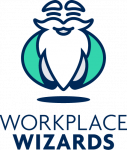Introduction
The start of the financial year on July 1 is an incredibly busy time. In and amongst businesses winding down from their EOFY preparations and beginning a new page, there are also rollouts of many legislative changes which come into effect on July 1. It can be overwhelming to navigate all the changes and make sure you’ve implemented them correctly, and mistakes can be costly, so we’ve compiled this handy summary list of all the changes to workplace law that have come into effect from July 1 2022 – including details of what they are, a few checklists for businesses to ensure they’re remaining compliant and where to go for further assistance & support!
In this article, you’ll find details for the following legislative changes:
- Minimum Wage Increase & Minimum Modern Award Wage Increase
- Super Guarantee Increase & Changes to the Super Threshold
- SCHADS Award Update
- Changes to Unfair Dismissal Protections
Changes to Minimum Wage & Minimum Modern Award Wage
Both the National Minimum wage (for employees who are not covered by an award or registered agreement), and minimum Award wages were increased as of July 1:
- The National Minimum wage has been increased by 5.2% (the new hourly minimum wage will be set at $21.38).
- The minimum Award wage has increased 4.6% for employees earning over $868.60 per week, who are covered by a modern Award.
- The minimum Award wages for employees earning below $868.60 per week has increased $40 per week. This is based on 38 hours per week for a full-time employee,
Please note that the changes to Award Minimum Wages for most industries came into effect on July 1 with the exception of the aviation, tourism, and hospitality industries. The increases to for these three industries will begin on 1 October 2022.
Changes to Super
The $450 per month eligibility threshold for super has been removed. As of July 1 2022, employees can be eligible for the super guarantee regardless of how much they earn.
The Super Guarantee rate has now increased from 10% to 10.5%, as of July 1 2022. Employers need to use the new rate to calculate super payments made to employees from the 1st of July onwards (including circumstances where the pay period, in part or full, is from before 1/07/22).
Changes to the Schads Award
Recently the Fair Work Commission (FWC) reviewed and amended the Social, Community, Home Care and Disability Services Industry Award 2010 (SCHADS award) that came into effect as of 1 July 2022.
Most of the changes stem from the change to minimum payment requirements. Specifically:
- The minimum engagement for select casual employees increases from 1 hour to 2 hours.
- There is now minimum engagement of 3 hours for part time social and community services employees who are not engaged in disability services work and 2 hours for those that are engaged in disability services work.
- The changes to minimum payment also applies to each period of work in a broken shift.
For a more detailed breakdown of the changes, visit our dedicated SCHADS update blog post, which will guide you through all the relevant changes & next steps for businesses who are covered by SCHADS.
Changes to Unfair Dismissal Protections
From July 1 2022, the high-income threshold has been raised to $162,000 (previously was $158,500). This threshold sets the income limit for an employee’s eligibility to claim unfair dismissal under the Fair Work Act 2009. Therefore, employees who are not covered by an award or enterprise agreement and earn above $162,000, may not be protected by unfair dismissal provisions.
Simultaneously, the amount the Fair Work Commission can order employers to compensate for unfair dismissal has been raised – the maximum compensation cap is now $81,000 (previously capped at $79,250).
What’s Next?
The most important next step is to ensure that you’re across the details of all these changes and have implemented them already, where applicable. Here’s a few checklist questions and considerations to help you with these updates:
- Have your payroll systems been updated to reflect this increase to the minimum wage and changes to super?
- Have you ensured that eligible employees, who were previously restricted by the threshold, are now paid the appropriate super?
- Underpayment & super payment issues have been rife and it’s easy for mistakes to go unnoticed without proper checks – do you regularly audit the wages & entitlements given to your employees?
- Have you ensured that your employment contracts are compliant with your obligations as set out by the Modern Awards, Super Laws and/or other relevant legislation?
- Are you familiar with the Award that covers your industry? Changes to the Award can occur a few times a year, so it’s important you know the details of the current Award and track any changes that roll out.
- To ensure you’re remaining compliant with current employment and business legislation, it might also be helpful to reconsider your current operational practices. We’ve written a handy blog with some HR considerations for the 2022/2023 financial year, which you can find here.
Workplace Wizards are experts in delivering training and advice to ensure employers are in-the-know about changes in their industry and have up-to-scratch compliance processes in their workplace. Give us a call on (03) 9087 6949 or send us an email at support@workplacewizards.com.au to discuss your options with one of our brilliant consultants!
We also recommend following us on our social media platforms for regular updates about industry changes – LINK TO LINKEDIN.




0 Comments Leave a comment
Comments are closed.